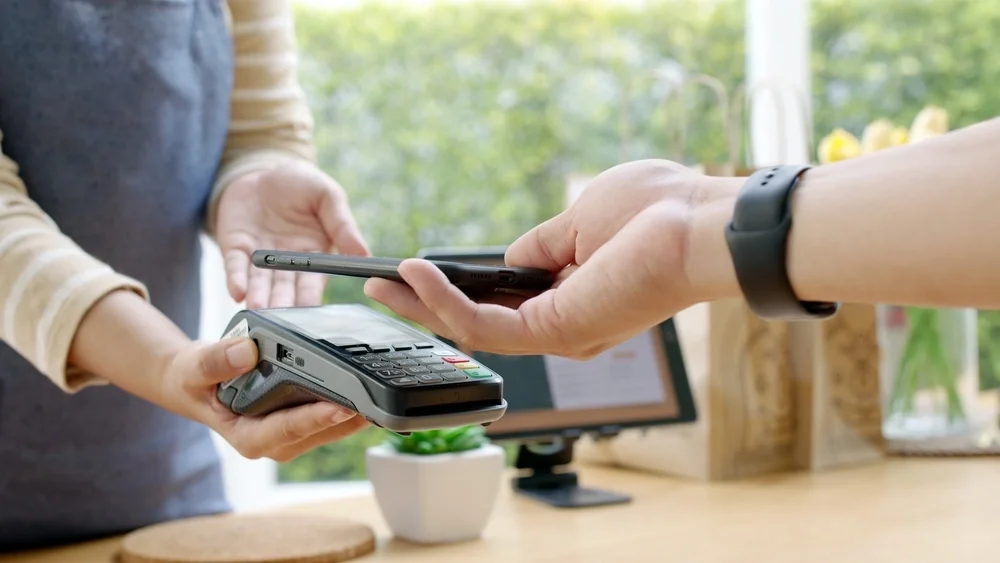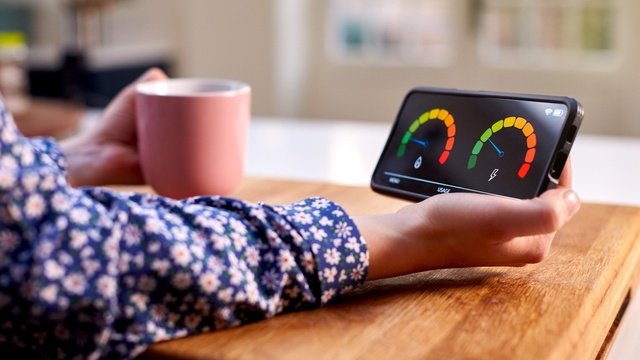Smart meters are now in over 65% of UK homes and small businesses. But they do more than just send readings to your energy company. They can help you save money too!
With energy bills still putting pressure on our wallets, your smart meter could be your new money-saving friend. Let's look at how you can use it to keep more cash in your pocket.
What does a smart meter do?
A smart meter sends your energy readings straight to your supplier. This means:
⚡You get bills for exactly what you use
⚡ No more estimates that might be too high
⚡ No more crawling into dark corners to read your meter
Your smart meter comes with a display screen that shows you how much energy you're using right now and over time.
Do smart meters work with pay-as-you-go meters?
Yes! If you top up your energy, your smart meter will show:
⚡ How much energy you're using
⚡ How much credit you have left
⚡ When you'll likely need to top up again
This helps you plan your budget better.
Four ways your smart meter can help you save money
1. Put your display where you can see it
Your display screen won't help if it's hidden away or still in its box! Place it somewhere you can easily see it during your day. The kitchen counter or living room shelf works well. When you can see it, you'll use it more.
2. Watch what you use
Your display shows electricity use almost instantly and gas use every half hour. Just boiled the kettle? You'll see what it cost you! Running the washing machine? Watch how much energy it uses.
Your display also adds up your spending by day, week, and month. This means no more bill shocks – you'll always know what you're spending.
3. Spot patterns and make changes
By checking your energy use over time, you can spot when you use the most energy. Recent studies show that 86% of people with smart meters have changed their habits after seeing their actual usage.
For example, you might notice you use lots of electricity on laundry days. This could help you decide to only run full loads or use eco settings more often.
4. See if your changes are working
After you make changes to save energy, your display lets you check if they're actually working! You can quickly see which efforts save you the most money.
Some changes might be easy and save you lots. Others might be a hassle and only save pennies. Your smart meter helps you focus on what really works.
Do smart meters save you money?
Just having a smart meter won't automatically save you money. The savings come from the changes you make after seeing your energy use.
According to the Department for Business, Energy and Industrial Strategy, households with smart meters currently save around £11 per year on their energy bills. These savings are expected to increase to about £47 per household annually by 2030.
Your smart meter can also help you decide if a different energy plan would save you money. It’s worth noting that some energy providers reward you for using a smart meter. You may be able to access smart-specific energy tariffs, as well as monthly freebies.
Money-saving tips to try:
- Hang clothes outside to dry instead of using the tumble dryer
- Switch off TVs and gaming consoles at the wall – don't leave them on standby
- Only boil the water you need in the kettle
- Swap screen time for board games or reading – they use no electricity!
- Move furniture away from radiators so heat can spread better
- Use a slow cooker instead of the oven (where appropriate)– it uses much less energy
- Turn lights off when you leave a room
Each small change adds up! Together, they can take a big bite out of your energy bills.
❗Remember: Your smart meter is a tool that shows you where your money goes. When you can see it, you can save it!
Fiona is a personal finance writer with over 7 years’ experience writing for a broad range of industries before joining Ocean in 2021. She uses her wealth of experience to turn the overwhelming aspects of finance into articles that are easy to understand.
![Email icon]()
Become a money maestro!
Sign up for tips on how to improve your credit score, offers and deals to help you save money, exclusive competitions and exciting products!
Find this useful? Share it with others!









